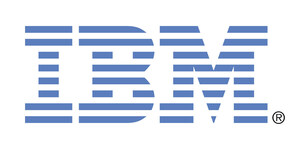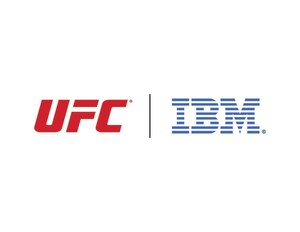DUBUQUE, Iowa, May 20, 2011 /PRNewswire/ -- The City of Dubuque and IBM (NYSE: IBM) today announced that the IBM analytics and cloud computing technology deployed in 2010 by Dubuque as part of its Smarter Sustainable Dubuque research helped reduce water utilization by 6.6 percent and increased leak detection and response eightfold.
(Logo: http://photos.prnewswire.com/prnh/20090416/IBMLOGO)
The Smarter Sustainable Dubuque Water Pilot Study empowered 151 Dubuque households with information, analysis, insights and social computing around their water consumption for nine weeks. By providing citizens and city officials with an integrated view of water consumption, the Water Pilot resulted in water conservation, increased leak reporting rate, and encouraged behavior changes.
Water savings were measured by comparing the consumption of the 151 pilot households with another 152 control group households with identical smart meters but without the access to the analysis and insights provided by the Water Pilot Study for the nine-week duration.
The smarter meter system monitored water consumption every 15 minutes and collected and communicated to the IBM Research Cloud. Data was collected from information including weather, demographics, and household characteristics. Using cloud computing, the data was analyzed to trigger notification of potential leaks and anomalies, and helped volunteers understand their consumption in greater detail. Volunteers were only able to view their own consumption habits while city management can see the aggregate data. All participating homes were volunteers and the data being collected was anonymous and contained no confidential information.
Participating households were alerted about potential anomalies and leaks and were able to get a better understanding of their consumption patterns and, compare and contrast it anonymously with others in the community. Pilot study participants accessed their personal water usage information through a website portal and participated in online games and competitions aimed at promoting sustainable behavior enabling them to become fully engaged and informed about their consumption and the impact of the changes they made to it. Participants were able to see their data expressed in dollar savings, gallon savings and carbon reduction.
More specific results include:
- 89,090 gallons were saved among 151 households over nine weeks, and if extrapolated to a full year, this would be a savings of 514,742 gallons in total, or 3,409 gallons per household annually.
- Assuming that the 151 households are a fair sample of the City of Dubuque, the aggregate annual community-wide water savings across 23,000 households with smart meters in the city would be 64,944,218 gallons. This would translate into an aggregate water bill saving of $190,936 a year in total.
- Pilot participants reported leaks at a rate of 8 percent compared to 0.98 percent of city-wide (i.e. 12 of the 151 pilot households, versus 226 out of 23,000 smart meter households). It is estimated that 30 percent of households on average have leaks.
- 56 households that used the portal multiple times reported the most benefits and they include:
- 77 percent said that the water portal increased their understanding of their water use,
- 70 percent felt it helped them assess the impacts of the changes they had made,
- 48 percent felt that it helped them conserve water,
- 61 percent reported that – during the study – they had made a change to their water equipment or in the ways they used water, or both (e.g., they took shorter showers, fixed leaks, purchased water-efficient appliances, or altered the watering system in the yard).
- 48 percent reported that – in the future – they plan to make changes to their water equipment or in the ways they used water (or both).
"Sustainable Dubuque began in 2006 as a holistic, grass-roots effort to make our community more sustainable and to create a model for cities across the country with populations under 200,000," said Roy D. Buol, mayor of Dubuque. "In 2009, we chose IBM as our partner to develop the tools our residents need to make better decisions about how they use resources like water, electricity, and natural gas. We are very encouraged by the results of the water pilot study and the community-wide benefits they offer." He added that the study will soon include transportation through vehicle miles traveled and wellness.
Using IBM's cloud computing capabilities to deliver this portal as a Web-based service, the company leveraged IBM Smarter City Sustainability Model to create this service for the Dubuque households participating in the pilot. IBM Smarter City Sustainability Model is a solution that allows for rapid integration of disparate sources of sensor data, business intelligence, and business analytics that allow decision support for multiple stakeholders and an engagement mechanism for interacting and influencing the behavior of the stakeholders.
"Today, municipalities and citizens more than ever need to understand their patterns of behavior and how to change them," said Milind Naphade, program director, smarter city services, IBM Research. "Whether it is in water consumption, traffic patterns or energy use, they need new technologies to enable the change. Our sustainability initiatives in Dubuque prove that, by using advanced analytics, community engagement, and cloud computing, government officials and citizens will have access to real-time data to alter their patterns of behavior, which will save them money. This water sustainability pilot case is a template for communities worldwide that seek to conserve various types of resources."
In 2009, IBM and Dubuque announced a collaboration aimed at making this community of 60,000 one of the first "smarter" sustainable cities in the U.S. Dubuque is recognized as a national leader in sustainability, with its forward-thinking public policy and, together with IBM, will address the ever-increasing demands of cities to deliver vital services, such as water management, energy and transportation, all while reducing the community's impact on the environment.
Partners in the Smarter Sustainable Dubuque project include IBM, the City of Dubuque, the East Central Intergovernmental Association, the Greater Dubuque Development Corporation, the Dubuque Area Chamber of Commerce, and the Community Foundation of Greater Dubuque. Sustainable Dubuque is a holistic model utilizing a three-part approach that addresses environmental and ecological integrity, economic prosperity, and social and cultural vibrancy. Dubuque residents identified 11 sustainability principles to guide their efforts: regional economy, green buildings, healthy air, smart energy use, healthy local food, clean water, smart resource use, community knowledge, native plants and animals, community design, and reasonable mobility. Dubuque was named one of the "Top 10 Smartest Cities on the Planet" by Fast Company in December 2010, and was awarded third-place honors and received a Gold Community designation at the 2010 International Awards for Livable Communities. In 2008, the U.S. Conference of Mayors named Dubuque the Most Livable Small City in the U.S.
Additionally, in 2009, IBM and leaders of Iowa's business and governmental communities opened an IBM technology services delivery center -- located in the historic Roshek Building in downtown Dubuque – and will employ 1,300 people by the end of this year.
Media Contacts: |
||
Randy Zane |
Randy Gehl |
|
IBM Media Relations |
City of Dubuque |
|
914-945-1655 |
Public Information Officer |
|
563-589-4151 |
||
SOURCE IBM
WANT YOUR COMPANY'S NEWS FEATURED ON PRNEWSWIRE.COM?
Newsrooms &
Influencers
Digital Media
Outlets
Journalists
Opted In






Share this article